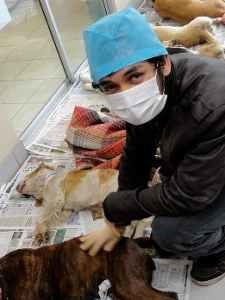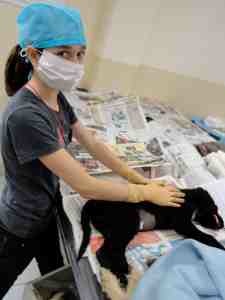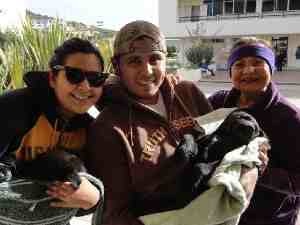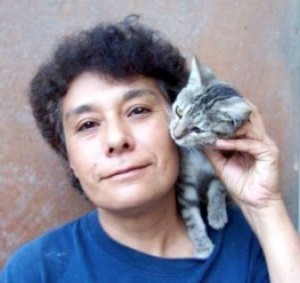Unbelievably, just one unaltered female dog, her mate, and their litters can produce over 67,000 puppies in a scant six years! While in the U.S., more than four million unwanted dogs and cats are euthanized annually, taxpayers rest assured that, in spite of this grim statistic, most of these animals die humanely and without undue suffering in the pounds and shelters across the country.
Last year, over 15 million cats and dogs were killed in animal shelters and pounds in the United States, and this figure does not include the many pets who were thrown out of cars, left by the side of the road, or dropped in woods and fields. Yet we can’t kill the myths that are perpetuating their destruction.
Then why don’t more people spay or neuter their pets? There are a number of myths that people believe which hinder their decisionmaking.
Which of these myths do you still believe?
MYTH: It’s better to allow your female to have one litter before she is spayed.
FACT: Not true! There is no information to substantiate this claim. In fact, the best time to spay your female dog or cat is before her first heat.
Here are the details:
- Spaying your female at a young age prevents uterine infections, such as pyometra, which can be fatal. Infections of the uterus are a major cause of illness in unspayed pets.
- Spaying reduces the incidence of mammary (breast) cancer. This is a very common cancer in unspayed females, and the most common cancer to spread to the lungs.
- Spaying can be done while your pet is pregnant. While this means aborting the offspring, it is more humane than taking them to the pound later. Also, for every litter you bring into the world, a litter at the pound dies.
- Spaying eliminates unwanted males from harassing your pet.
MYTH: Preventing pets form having litters is unnatural.
FACT: We have already interfered with nature by domesticating dogs and cats. We domesticated the dog 15,000 years ago and the cat 8,000 years ago.
In doing so, we helped create this problem. Now it’s our responsibility to solve it. It’s also unnatural to be killing so many of them in our pounds and shelters each year.
MYTH: I want my children to see the miracle of birth.
FACT: Frequently animals go off by themselves to give birth, usually in the middle of the night.
Teach your children instead about humaneness and kindness to all living creatures by educating them about the importance of spaying and neutering.
MYTH: I’ll find good homes for all the puppies and kittens.
FACT: You may find homes for all of your pet’s litter. But each home you find means one less home for the dogs and cats in shelters who need good homes.
Also, in less than one year’s time, each of your pet’s offspring may have his or her own litter, adding even more animals to the population. The problem of pet overpopulation is created and perpetuated one litter at a time.
MYTH: Pets become fat and lazy after being spayed or neutered.
FACT: Fat animals are usually over fed and under exercised.
It’s true there can be a tendency for a pet to put on some weight after the operation. But what is not true is that the operation causes the condition. If your pet shows signs of putting on a little weight, reduce the calories and increase the walks or play sessions. That will keep the waistline trim.
MYTH: A pet’s behavior changes dramatically after surgery.
FACT: The only changes in behavior you’ll see are positive ones! Here are the facts:
- Male cats tend to reduce their territorial spraying depending upon the age at which they are neutered. If neutered young enough, before they develop the habit of spraying, they may never develop the behavior.
- Neutered male cats and dogs fight less resulting in fewer battle scars, contagious diseases, and abscesses. They also wander less since they aren’t interested in pursuing the female in heat. Therefore, their chances of being hit by a car or getting lost are greatly reduced.
- In fact, spayed and neutered animals live longer, happier, healthier lives.
MYTH: We don’t need to neuter males, because they aren’t the ones having the litters.
FACT: This is most prevalent myth yet the most ridiculous. Immaculate conception doesn’t explain canine and feline pregnancies.
It takes two to tango. Help to become a part of the solution to bring an end to the pet over population problem spay/neuter your pets.
MYTH: Neutering male cats causes urethral obstructions.
FACT: Exhaustive studies have indicated that obstructions are not affected by whether or not a cat is neutered.
In fact, neutering diminishes the likelihood of prostate and testicular cancers and perineal hernias later in life. To prevent urethral obstructions, make sure your pet is eating the best diet possible.
MYTH: I can find “good” homes for all the puppies or kittens that female birth to.
FACT: Finding truly good, lasting homes for kittens and puppies is very difficult.
Many pets are taken to the pound or otherwise discarded once they start to grow. And, who is to ensure that your pet’s offspring won’t mature, breed, and contribute to the existing problem?
There is no way you can guarantee these animals will be spayed or neutered. Also, for every animal you bring into the world, one at the pound will die. Do yourself a favor and avoid the agonizing job of trying to find homes for your pet’s litter. If you know of some good homes, send your friends to the pound. There are many animals waiting there. And their time is running out.
MYTH: My dog won’t be a good watchdog if I neuter him.
FACT: If he was a good watchdog before the surgery, he will be a good watchdog after the surgery.
MYTH: The operation costs too much money.
FACT: There is A LOT of financial help available. Call us (909-801-0012) or your local humane agency about the cost- effective ways you can get your pets spayed and neutered. You’ll be surprised how inexpensive it can be!
If your pet isn’t spayed or neutered, make an appointment today for surgery. The more altered animals there are, the fewer homeless ones there will be.
If you would like to find low-cost spay/neuter services, we hope you will find the following information helpful.
- SPAY/USA, a program of The Pet Savers Foundation, is a nationwide network and referral service for affordable spay/neuter services.Call 1-800-248-SPAY (7729) or go to www.spayusa.org for more information. Hours are Monday-Friday from 9 am- 4:30 pm (Eastern time).
- Actors and Others for Animals provides FREE spay/neuter for pit bulls and pitbull mixes, as well as Rottweiler and Rottweiler mixes. Participants must meet certain qualifications. For more information, please call (818) 755-6045 or (818) 755-6323.
- The L.A. Spaymobile state-of-the-art mobile clinic provides free spay and neuter surgery for dogs and cats living with income-qualified families in the City of Los Angeles. If you receive a Department of Water and Power bill, then you live within the city limits. For information on qualifications, as well as a schedule of clinic locations, visit L.A. Animal Services website at www.laanimalservices.com or call (800) 772-9452 to make an appointment.
- Try a zipcode search on the ASPCA website to find providers in your area.






